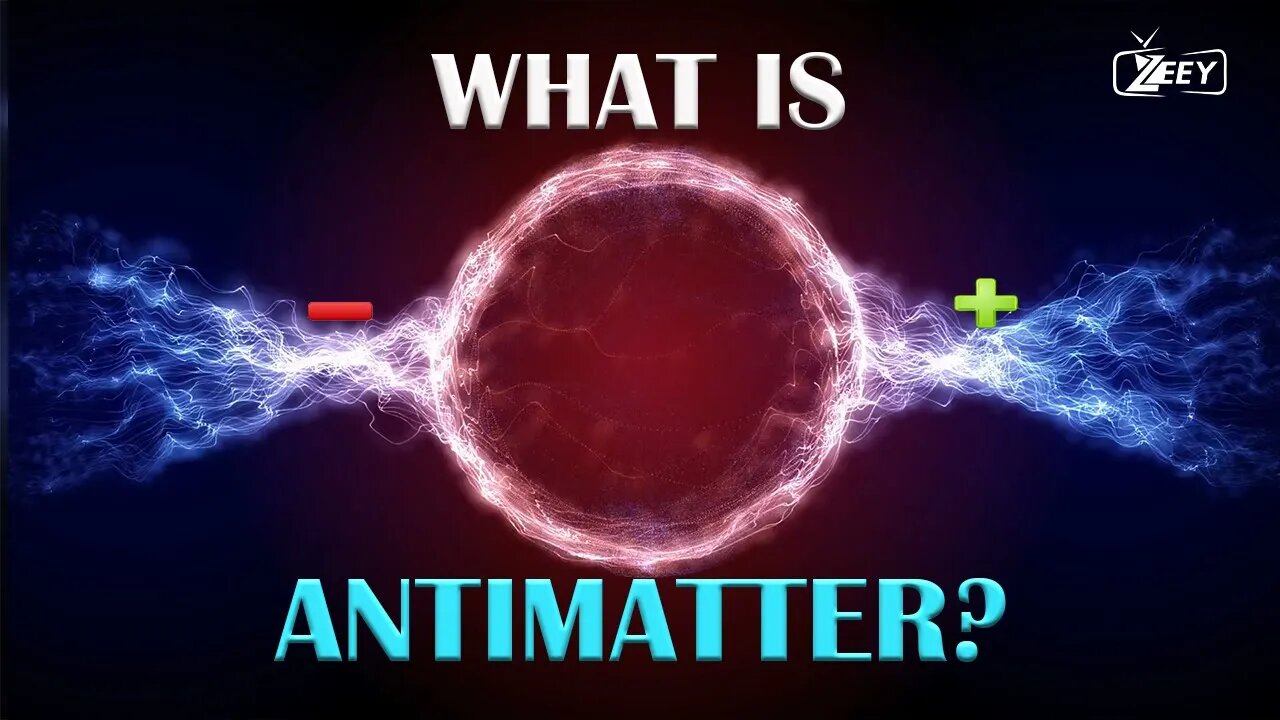Premium Only Content

what is an antimatter explained -hd | positrons | particle physics | cern | nuclear bomb
#Antimatter#Physics#QuantumMechanics
Antimatter is a form of matter that is composed of antiparticles, which are the counterparts of the particles that make up ordinary matter. Each particle of ordinary matter has a corresponding antiparticle with the same mass but opposite charge. For example:
Electron (ordinary matter) - Positron (antimatter)
Proton (ordinary matter) - Antiproton (antimatter)
The key characteristic of antimatter is that when an antiparticle comes into contact with its corresponding particle, they annihilate each other, releasing a tremendous amount of energy in the process. This annihilation is highly efficient and results in the complete conversion of matter and antimatter into energy according to Einstein's famous equation, E=mc2, where "E" represents energy, "m" is mass, and "c" is the speed of light.
Antimatter has the potential to be used as a very efficient and powerful source of energy, and it has been a subject of scientific research and science fiction for many years. However, creating, storing, and controlling significant amounts of antimatter is extremely challenging and costly. Antimatter is also rare in the universe, and it is primarily observed in cosmic rays and in some particle accelerators on Earth.
One of the most practical applications of antimatter research is in the field of medical imaging, where positron emission tomography (PET) scans use positrons (antiparticles of electrons) to create detailed images of the human body. Additionally, antimatter is a topic of interest in theoretical physics and cosmology, as its existence has implications for our understanding of the fundamental laws of physics and the early universe.
#SciFi#Innovation#MatterVsAntimatter#Astrophysics#QuantumPhysics#Einstein#Universe#Antimatter#Physics#Science#Cosmology#ParticlePhysics#SpaceExploration#FutureTech#EnergySource#ParticlePhysicsQuantumMechanics#LargeHadronCollider#HiggsBoson#SubatomicParticles#StandardModel#ParticleAccelerators#CERN#DarkMatter#DarkEnergy#StringTheory#Astrophysics#CosmicRays#NuclearPhysics#ParticleDiscovery#PhysicsExperiments#ParticleCollider#ScientificResearch
-
 33:05
33:05
ArturRehi
1 day ago1,000 Shahed Drones Explode at the same time in a BEHEMOTH FIREBALL in Donetsk
63 -
 15:36
15:36
JohnXSantos
1 day agoHow To Design A Luxury Clothing Brand With A.I (From 0-$100+)
20 -
 1:55:13
1:55:13
The Kevin Trudeau Show Limitless
3 days agoHow To Pray To Get Results!
1.67K5 -
 1:17:46
1:17:46
Squaring The Circle, A Randall Carlson Podcast
22 hours agoRandall Carlson Defines The Younger Dryas
1.57K4 -
 40:03
40:03
WanderingWithWine
7 days ago $0.07 earnedBuy a Home for Less Than a Car? 5 Italian Homes for Sale in Puglia
671 -
 10:09
10:09
Advanced Level Diagnostics
2 days agoWhy I Never Use Cheap Fuses!
30 -
 10:23
10:23
Forrest Galante
3 hours agoAsking an Indian Billionaire Why He Is Saving 1 Million Animals
55.6K11 -
 8:43
8:43
MattMorseTV
18 hours ago $45.55 earnedTrump CALLED Schumer’s BLUFF.
27.8K91 -
 LIVE
LIVE
Joe Donuts Live
3 hours ago🟢 Fast XP Farming in Fortnite? | DropZone Sunday
296 watching -
 LIVE
LIVE
Lofi Girl
3 years agolofi hip hop radio 📚 - beats to relax/study to
252 watching